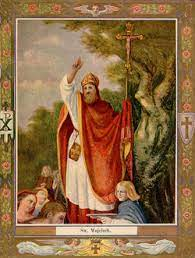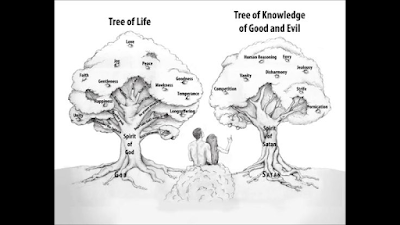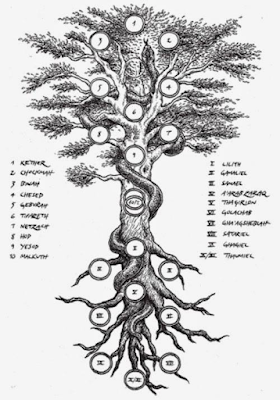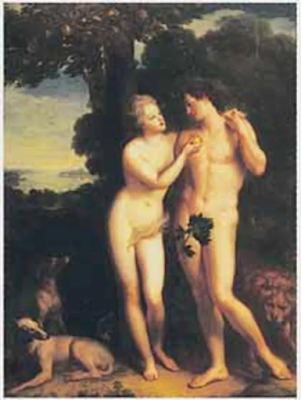What Is The Book of the Penitence of Adam?
 |
| Bibliothèque de l'Arsenal |
It tells how Adam's first two sons, Cain and Abel, typify
physical power and intelligence, respectively, and how Adam's heritage was
handed down to his third son, Seth.
Seth was allowed to proceed as far as the Earthly Paradise's
gate without being threatened by the guardian angel's flaming sword, indicating
that he was an occult science adept.
He saw the Tree of Life and the Tree of Knowledge, which had
grafted themselves together to create a single tree.
Some critics say this represents the Kabala's harmony of
science and religion.
Seth was given three seeds from this tree by the guardian
angel, who instructed him to deposit them in the mouth of his father, Adam,
when he died.
The blazing bush emerged from this planting, from which God
revealed his holy name to Moses and from which Moses produced his miraculous
wand.
This was put in the Ark of the Covenant and was subsequently
planted on Mount Zion by King David, where it grew into a triple tree that was
ultimately chopped down by Solomon to build the pillars Jachin and Boaz that
stood at the Temple's entrance.
A third piece was placed at the big gate's threshold as a
talisman, preventing any impure item from entering the sanctuary.
However, some evil priests took it away, weighed it down
with stones, and tossed it into the Temple reservoir, where it was guarded by
an angel who kept it hidden from men's eyes.
The reservoir was emptied during Christ's time, and a beam
of wood was uncovered and put across the stream Kedron, which the Savior
crossed after being apprehended in the Garden of Olives.
His executioners took it and turned it into a crucifix.
This mythology is very similar to the ones that led to the
creation of the Holy Grail.
The wood, by whose instrumentality Adam, the first man,
fell, restores man.
The belief that the Cross was a branch of the Tree of
Knowledge was popular in the Middle Ages, and it may be found in the
twelfth-century Quete del St. Graal, which is attributed to Walter Map but was most likely
just modified by him.
The allegory found in the Book of the Penitence of Adam,
which enriches and sheds substantial light on the whole kabalistic literature,
embodies all of the Kabala's traditions.
~Kiran Atma














